Choose To Reuse
by Rianna Koppel, Co-op Sustainability Coordinator
At the Ashland Food Co-op, we are committed to becoming Zero Waste by 2030. Along the way, we’ve learned a lot about packaging and single-use at our store. Our owners care deeply about reducing plastic waste, and we do too!
Reusable Bags
At the co-op, we have many different bag options… So what's the best choice?
We offer plastic bags, paper bags, and reusable bags. There is a 2¢ charge for new plastic bags, and a 10¢ charge for new paper bags. These charges help to subsidize the costs of our reusable bags.
We offer two reusable options, both costing only 50¢! Our plastic bag is made from reused and recycled plastic. Our fabric bag is made from cotton by the company Royal Jute. 100% of the proceeds from Royal Jute go directly to Kiva, a nonprofit that finances micro-lending programs for women across the world. Every time you purchase or use one of these bags, it makes a real impact for the planet and people.
Since we introduced reusable bags in fall of 2018, we have sold over 16,000 of them to our awesome and very sustainable members. This has worked to reduce plastic too - we have ordered 100,000 less plastic produce bags than in 2018.
What About Compostable Bags?
Sometimes people ask, why don’t you use compostable bags like other grocery stores? This is a great question, with a complex answer.
There are many commercially compostable items out there - including our very own Co-op take-out containers. If you start reading the tiny font on various packaging, you will see that there are many packaged items that are compostable in industrial or commercial facilities.
Here’s the problem: we don’t have any industrial composting facilities in the state of Oregon that will take these kinds of materials.
In fact, every composting facility in Oregon came together to issue a statement on their refusal. They called it, “A Message From Composters Serving Oregon: Why We Don’t Want Compostable Packaging and Serviceware”. The company listed out nine reasons why it’s not a good idea, including the facts that these materials do not always break down, they introduce contaminants, and they cannot sell this compost to organic farmers.
You can read more about this statement in this NCRA article from March 2019.
What about straws made from avocado pits?
So what about bio-based products made from renewable materials like bamboo, corn, or avocado pits? No matter the material, it’s still a single-use straw. There is a financial impact as well - straws made from avocado pits costs a whopping 600% more than a single-use paper straw. I suggest trying a reusable stainless steel straw instead!
There’s another hidden cost to plastics made from materials like corn… the impact on the environment.
According to the Oregon Department of Environmental Quality’s study on Popular Packaging Attributes, bio-based disposables can actually have a worse environmental impact! They concluded that biobased packaging materials have significant environmental trade-offs when compared to non-bio based counterparts. Plus, they take away from food production.
What Can I Do?
Choose to reuse first. Make sure to throw your reusable produce bags in with your tote bags, and don’t forget your coffee cup! Eat in at the Co-op on a durable plate or bowl - which will save you 15¢.
There are different ways to address our plastic problems, and each one of them can start with us making the choice to reuse. We started our 15¢ discount for bringing your own coffee cup in 2013 - since then, customers have used this discount over 113,000 times! That’s an amazing diversion from the landfill that makes us proud to be committed towards zero-waste at the Co-op.
If you would like to learn more about our sustainability initiatives, contact Rianna at sustainability@ashlandfood.coop.
More Co-op News
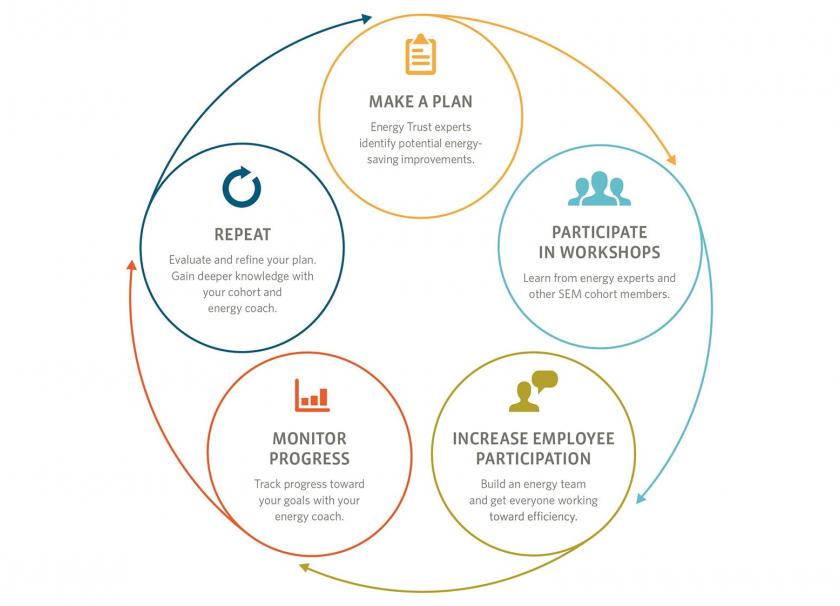
An update on Strategic Energy Management at the Co-op
By Nina Friedman, Strategic Energy Management intern
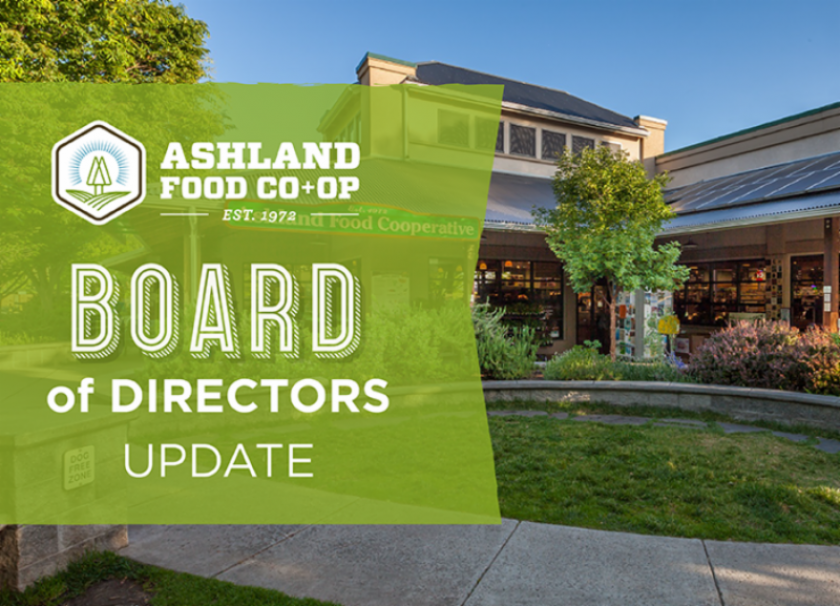
Open letter from AFC Board on Coronavirus Policies
The Ashland Food Co-op has played a critical role supporting our community for nearly 50 years by providing healthy food and a safe place to shop. With the recent COVID-19 shutdown, this support has been even more important and has stretched our organization in ways that we could not have anticipated. We have endeavored to address the needs of both our staff and our customers, hopefully in the most cooperative manner.
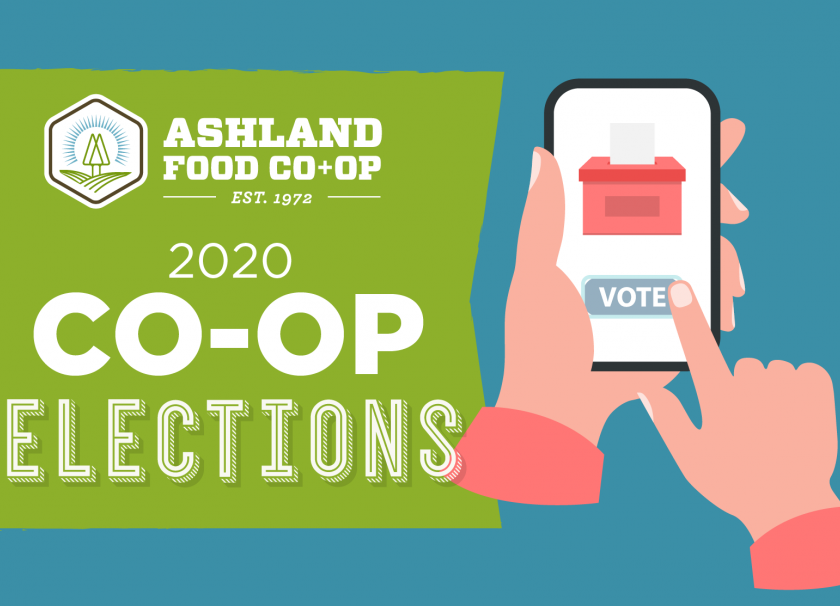
Owner Voting on 2020 Co-op Board & more
As an owner of the Ashland Food Co-op, you are an important decision-maker in the leadership of the Co-op! A vital part of your ownership is voting for the Board of Directors.
On the ballot: Vote for Board Candidates and Change for Good Organizations
Vote for Board Candidates
This year, four candidates are nominated for three Board positions: each elected Board director will serve a three-year term. The candidates are Ed Claassen, Mark Gibbs, Carolina Livi and Julie O'Dywer.
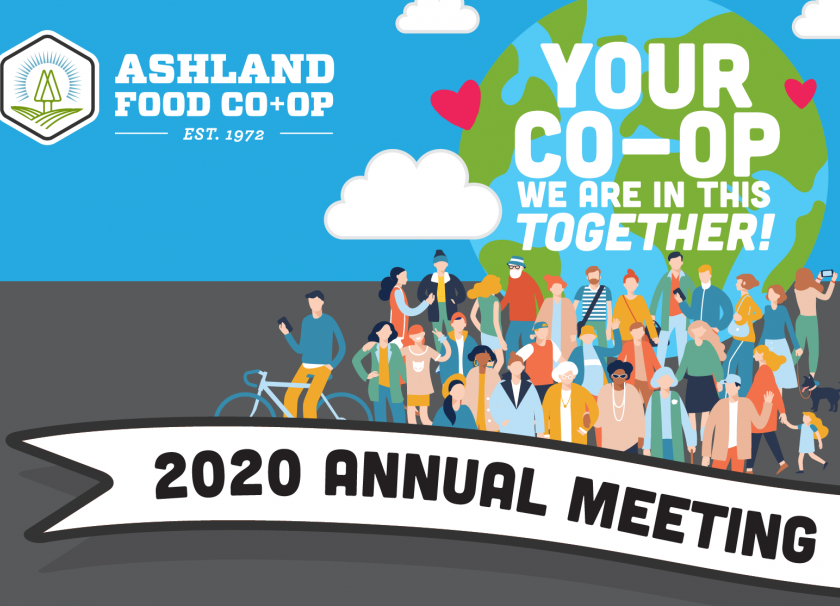
2020 Annual Meeting for Owners
Mark the evening of May 13 at 5pm on your calendar and join us for the 2020 AFC Annual Meeting. We’ll host the meeting online using Google Hangouts. Please click here to join the meeting, or call in at this number:
+1 617-675-4444
PIN: 719 680 293 2056#
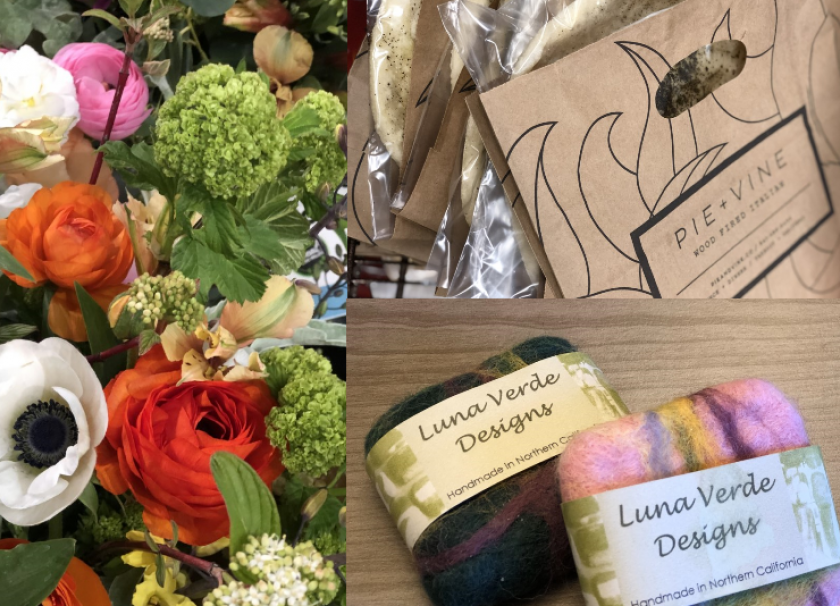
A dozen local favorites to explore this summer
The Co-op has always had a focus on supporting the strong local scene of growers and producers - and in these times, it's even more important. Here is just a small selection of some of our favorites from the area. Help support local businesses next time you stop by the Co-op by picking one of these products.

Unwavering Spirit in a Time of Change
By Emile Amarotico, General Manager
It’s been two months since my last update on our Co-op community, but it could just as well have been two years ago, or from an alternate reality! Needless to say, life at the Co-op has changed, and it hasn’t been easy for employees or shoppers. But despite the challenges, it has been an inspiring and reaffirming time that reminds us why we love the cooperative enterprise.
Staying Sustainable in A Changing World
By Rianna Koppel, Sustainability Coordinator
In the midst of a health crisis, how can we focus on sustainability? Let’s be real - these are tough times!
What does sustainability look like now? I like to refer to the definition of sustainability - meeting the needs of the present without compromising the ability of future generations to meet their needs. How can we meet the needs of the present, while keeping the future in mind?
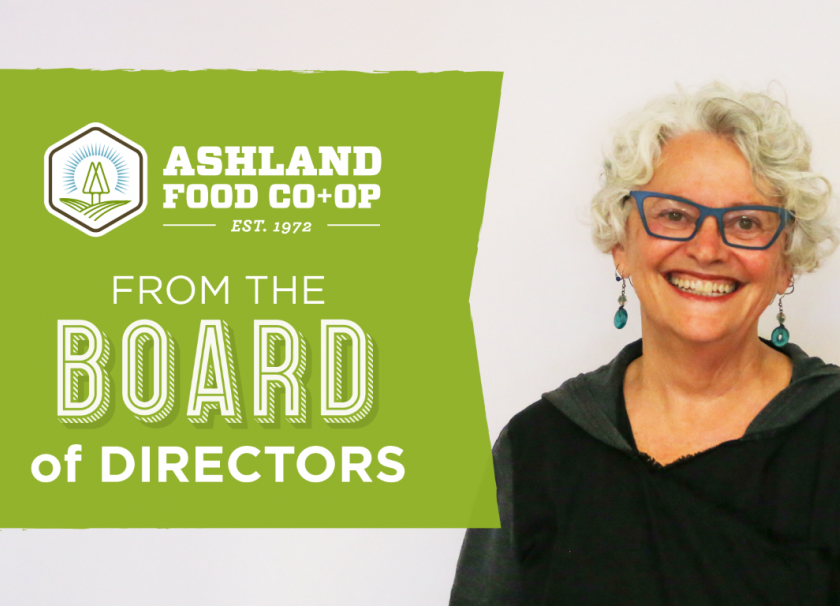
Democracy and Co-ops
By Annie Hoy, Board Director
This month, AFC Owners will democratically elect a slate of board candidates. These candidates are co-op owners, just like you and me. By holding annual elections, co-ops around the world and close to home are expressing Cooperative Principle 2: Democratic Member Control.
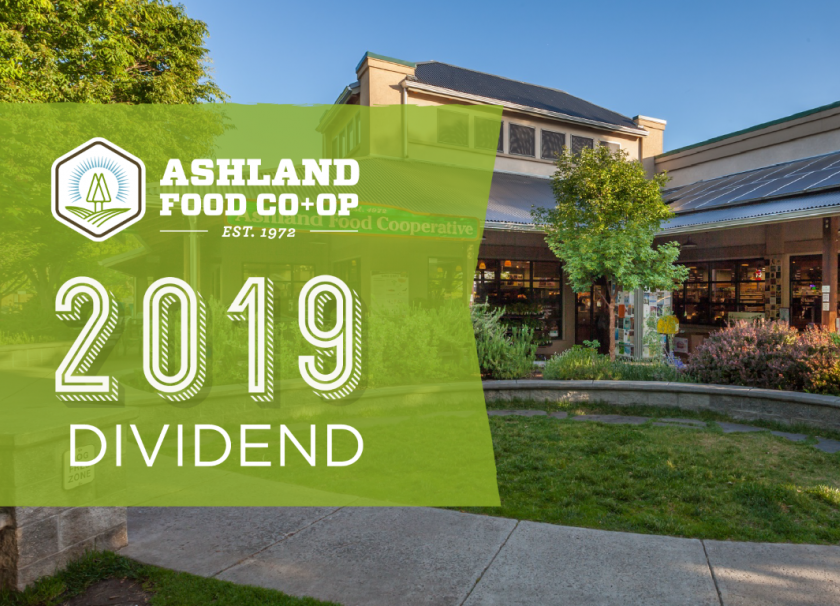
2019 Patronage Dividends are available now
From the Board of Directors:
This year, the Co-op Board of Directors is taking unprecedented action to distribute 100% of the over $628,000 2019 Patronage Dividend to our owners. In this time of great need, there is no holding back. This is not the moment to put away funds for the future, but rather to support our owners fully so that we may all have more strength to weather the storm.
Beans from Scratch
Michelle isn't serving up samples right now, so she's serving up kitchen tips instead! Here's her tried and true approach to cooking dry beans, plus some extra tips for upping your flavor, saving time, and cook other legumes. (Ingredients and modifications are below the video.)
Ingredients
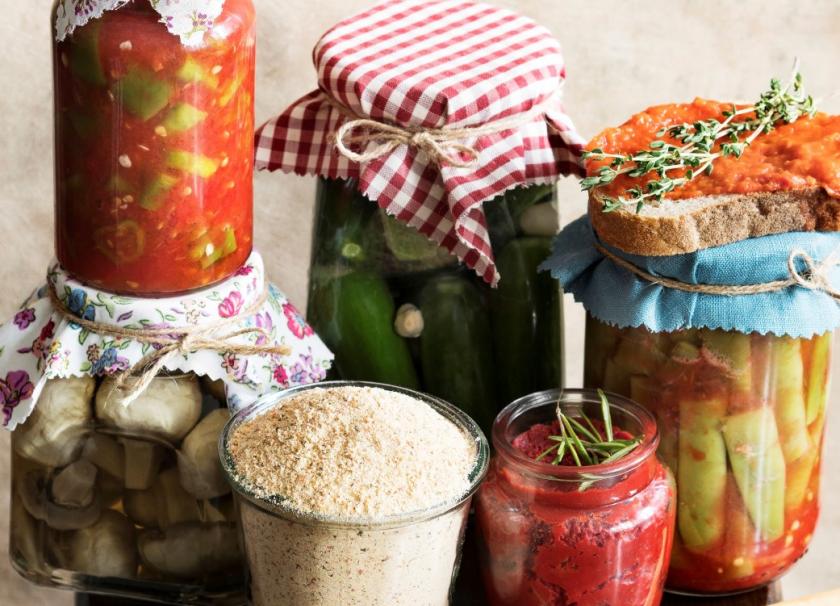
Tips to Stay Safe and Limit Waste
By Mahlea Rasmussen, Education Coordinator
Inspired by Bea Johnson's Zero Waste Home
We are in uncertain times and some of you may be second-guessing some of your zero waste practices and replacing them with safety measures for you and your family. I was proud not to have chemical cleaners in my home and never used plastic gloves - but now those products are being suggested for staying clean and safe. Here are some tips to keep your home safe while working towards more sustainability.

Ashland Food Co-op employees are heroes, worthy of respect and gratitude
Until a crisis like this occurs, few think of Grocers as essential service providers. However, our employees have been here day in and day out, risking their health and the safety of their loved ones, to provide food for our community. This is not a job that can be done from home or from what is now considered a safe social distance. Our employees have worked with the utmost professionalism, care, and concern for shopper well-being.
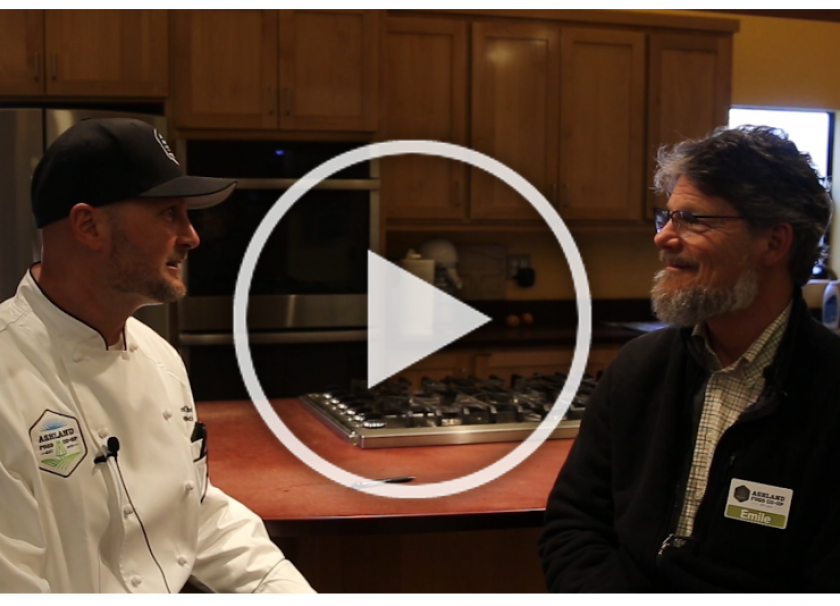
Meet Reagan Roach, AFC Executive Chef & Prepared Foods Manager
The Co-op's general manager, Emile Amorotico, sat down with the newest addition to the co-op's management team, Reagan Roach. Get to know Reagan in the interview below - and say hi when you see him in store!
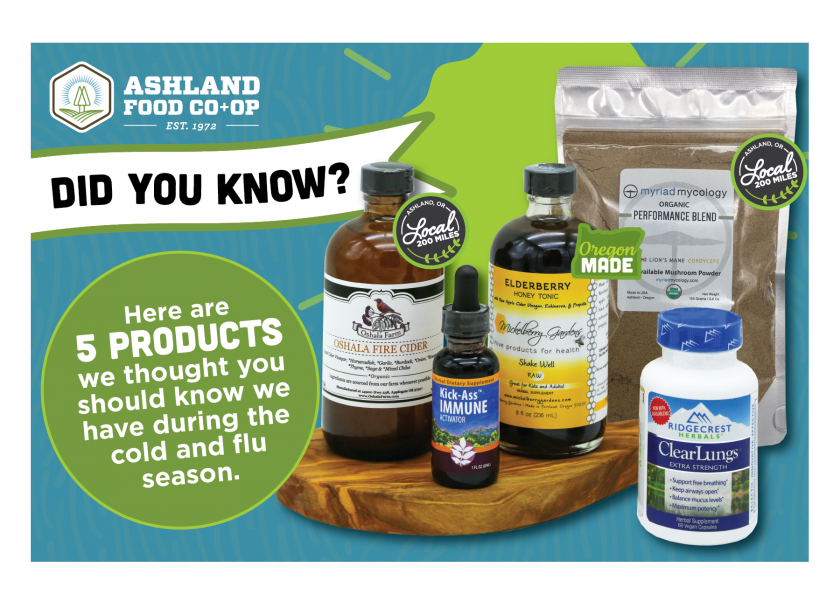
5 Things You Didn't Know the Co-op Carries for Cold, Flu & Immune Protection
- Wishgarden Herbs - Kick Ass Immune: Your total frontline immune defense!
- Oshala Farm - Oshala Fire Cider: Locally made in the Applegate. It tastes so good you could craft a healthy dressing with this fire cider!
- Mickelberry Gardens - Elderberry: Great Immune support for kids and adults. Made in Oregon.

